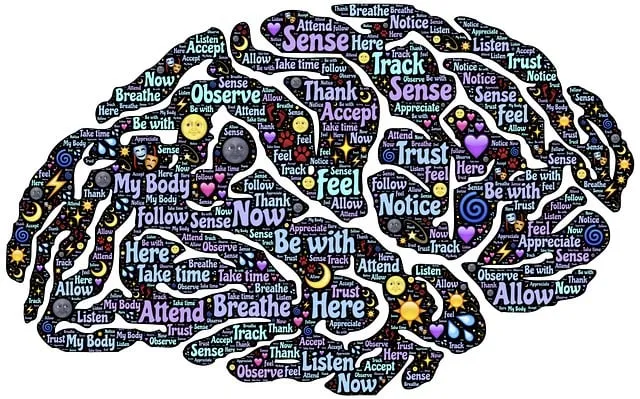Mental wellness journaling, facilitated by centers like Boulder Kaiser Permanente Mental Health Access Center, is a powerful self-care tool. Writing about thoughts and feelings improves mental health understanding, reduces stress, boosts mood, enhances self-awareness, and prevents burnout. It aids in conflict resolution, anxiety management, and processing challenging situations. The center promotes active mental wellness through journaling, encouraging daily documentation to enhance mindfulness and self-awareness, empowering individuals to take control of their mental health journey and fostering insights leading to positive changes and improved well-being. Starting a mental wellness journal involves selecting tools, setting intentions, establishing routines, and exploring techniques like gratitude writing, mindfulness observations, self-compassion exercises, and visual expressions.
“Unwind and reconnect with yourself through the powerful practice of mental wellness journaling. This article explores how this simple yet effective self-care tool can significantly enhance your overall well-being, especially with the support of the Boulder Kaiser Permanente Mental Health Access Center. Discover a step-by-step guide to beginning your journey, uncovering hidden emotions, and fostering personal growth. Learn how this center is revolutionizing mental health access through journaling encouragement.”
- Understanding Mental Wellness Journaling: An Effective Self-Care Practice
- The Boulder Kaiser Permanente Mental Health Access Center and its Role in Encouraging Journaling
- Step-by-Step Guide to Starting Your Mental Wellness Journal
Understanding Mental Wellness Journaling: An Effective Self-Care Practice

Mental wellness journaling is a powerful self-care practice that has gained significant attention in recent years, especially with the support of centers like Boulder Kaiser Permanente Mental Health Access Center. By dedicating time to write down thoughts and feelings, individuals can foster better understanding and management of their mental health. This simple yet effective exercise allows one to explore emotions, reflect on experiences, and gain clarity in a safe and private space.
Journaling offers numerous benefits for mental wellness, including stress reduction, improved mood, enhanced self-awareness, and even the potential for preventing burnout. It can also serve as a tool for developing conflict resolution techniques and managing anxiety relief strategies. By putting pen to paper, individuals can better process challenging situations, identify patterns in their thinking, and discover healthy coping mechanisms tailored to their unique needs.
The Boulder Kaiser Permanente Mental Health Access Center and its Role in Encouraging Journaling

The Boulder Kaiser Permanente Mental Health Access Center plays a pivotal role in fostering mental wellness through innovative practices like journaling. Recognizing the power of self-expression and introspection, the center encourages individuals to harness their thoughts and emotions by documenting them daily. Journaling is seen as a valuable tool for cultivating mindfulness meditation and enhancing self-awareness exercises, enabling people to better understand and manage their mental health.
By integrating this simple yet profound practice into their services, the Boulder Kaiser Permanente Mental Health Access Center aims to empower individuals to take an active role in their mental wellness journey. Journaling offers a safe space for reflection, providing insights that can lead to positive changes and improved overall well-being.
Step-by-Step Guide to Starting Your Mental Wellness Journal

Starting a mental wellness journal is a powerful way to enhance your emotional well-being promotion techniques and cultivate compassion within yourself. Here’s a step-by-step guide to help you begin this transformative practice, inspired by the resources available at Boulder Kaiser Permanente Mental Health Access Center.
1. Choose Your Journaling Tool: Select a notebook or digital document that feels comfortable to use. Consider factors like size, quality of paper, and whether you prefer pen and paper or a word processor for ease of editing.
2. Set Clear Intentions: Before you begin writing, take a moment to set your intentions. Reflect on what you hope to gain from journaling. Are you looking to improve mood management, track thoughts and feelings, or explore compassion cultivation practices? Setting clear intentions will help guide your entries.
3. Create a Routine: Consistency is key. Decide on a time of day that works best for you to journal, whether it’s in the morning to set a positive tone for the day or before bed to process emotions from the day just passed.
4. Write Freely: There are no rules when it comes to what you write about. Some days, your entries might be a stream of consciousness exploring thoughts and feelings. Other times, they could be structured reflections on specific compassion cultivation practices or mood management techniques you’re trying out.
5. Explore Different Techniques: Incorporate various emotional well-being promotion techniques into your journaling practice. This could include writing about gratitude, practicing mindfulness through observations, engaging in self-compassion exercises, or even drawing and doodling to express yourself visually.
Mental wellness journaling is a powerful tool for self-reflection and personal growth, as demonstrated by the supportive role of the Boulder Kaiser Permanente Mental Health Access Center. By following a structured approach, as outlined in this guide, anyone can begin to navigate their mental health journey with increased awareness and clarity. Starting your own mental wellness journal is a simple yet effective way to foster resilience and overall well-being.






